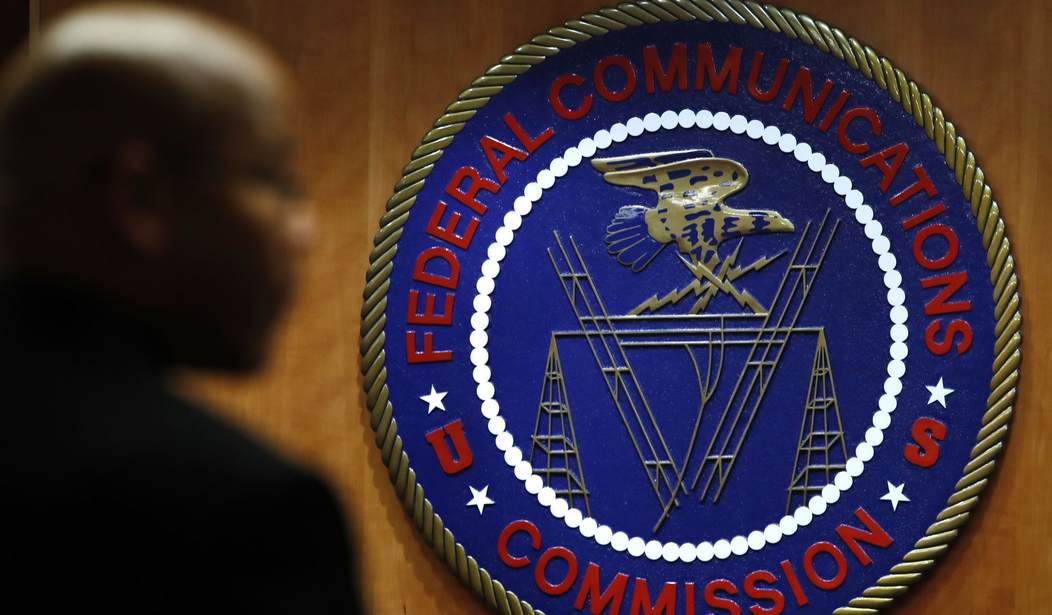The Federal Communications Commission (FCC) has done some great things under the leadership of Chairman Ajit Pai, freeing up more spectrum for 5G, helping to bridge the digital divide, and more. Unfortunately, the FCC is on the cusp of pushing out a rule that, despite good intentions, would put consumers’ access to free 1-800 numbers at risk. The solution proposed would put a thumb on the scale of competition and hurt millions of consumers who rely on these services.
Hundreds of millions of free 1-800 calls are made every month with an exceptionally high percentage going to government agencies like the IRS, state unemployment agencies and crisis hotlines. During our present COVID-19 pandemic circumstances, millions of Americans now make 1-800 calls every day to join virtual meetings for work and remote learning sessions for students. In this challenging time, it makes sense that these 1-800 services should remain toll-free for people who rely on them.
If the FCC moves forward, toll-free calling will cease to be free for Americans.
As quite often happens with government, this process started in a good place in an effort to root out isolated examples of abuse of the 1-800 system, yet some interested parties hijacked the process to push a solution that is an overcorrection.
The FCC’s new rule would eliminate or drastically cut compensation that local telephone companies and other carriers receive for their services of connecting toll-free calls to long distance service providers. This means big windfall savings for the large long-distance carriers that sell 1-800 numbers to government agencies and businesses, though those carriers have not said a word about whether or how they will pass on the savings to their customers. At the same time, some local telephone companies have already said they will need to raise their rates on ordinary consumers to make up for their losses.
Recommended
At a time when President Donald J. Trump is in dire need of support from rural America, the FCC Order will hurt rural and smaller American companies because they will lose revenue and inevitably will bear more of the cost of connecting their consumers’ 1-800 calls to long distance carriers.
The FCC’s proposed rule would also undermine local telephone companies’ access to services that help them run their networks and serve their customers efficiently. For example, the FCC Order would cut payments to competitive operators of “tandems.” A tandem connects large volumes of toll-free calls through IP interconnection, which allows them to convert and connect calls efficiently and at low cost. The result of the FCC Order will be a free-rider problem that will distort the market and drive local carriers and tandems out of business in favor of monopolies while small businesses and the economy as a whole are struggling to recover from the coronavirus shutdown of the economy.
In short, the beneficiaries—if the FCC goes forward as planned—will be large telecommunications companies. The losers will be smaller local carriers who will not be compensated for their services and their customers who will see higher bills. This would harm American small businesses and rural America, while undermining the FCC’s own efforts to close the digital divide. The Order as currently written is a crony interference in the market, and it runs contrary to the administration’s highly successful (de)regulatory approach. More, it looks like a Big Government/Big Business manipulation of the 1-800 marketplace.
The FCC Order will directly impact consumers, who will experience inferior toll-free call service due to a lack of market competition. The toll-free market will become, in effect, a monopoly where consumers will be hit with dropped calls, poor access, and increased costs because of a lack of competition.
Another concern is preparing for the next pandemic or natural disaster. Simply put, we need a functioning 1-800 call system. The coronavirus pandemic has underscored the importance of building in safeguards for critical services and products. We are seeing this today with a heavy reliance on China for the ingredients of necessary drugs to fight the coronavirus and other illnesses. Local, rural phone companies and the services they use to connect consumers’ 1-800 calls have been important as toll-free calls surged over the past few months. Now is not the time to experiment with changes to this important system.
Although this is a relatively obscure issue for most Americans, it is an important one. Voters don’t like being surprised by paying more for less. The FCC is using a hammer for a narrow problem created by a few bad actors. The result will be an Order that harms American rural and small business.
President Trump should be doing everything he can to attract rural voters. This FCC Order will do the exact opposite: it will harm competition, create free riders, raise costs on consumers, and jeopardize rural consumer access to toll-free services.
Jerry Rogers is the founder of Capitol Allies and the host of the ‘Jerry Rogers Show’ on WBAL NewsRadio.
























Join the conversation as a VIP Member